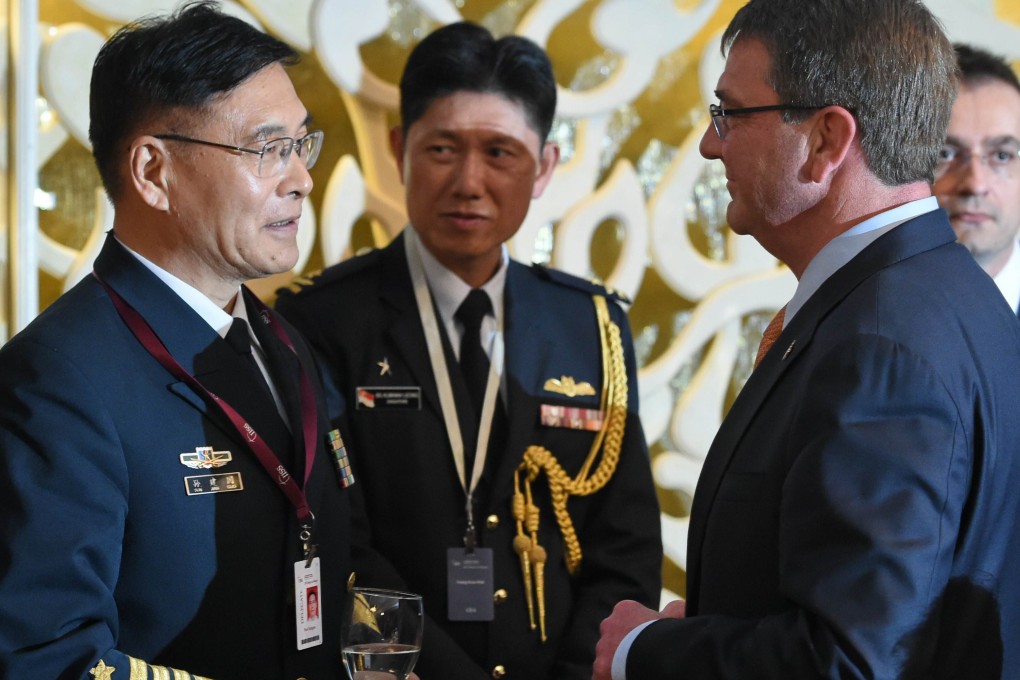Economic interdependence underpins peace between China and the US
Dingding Chen says while this acts as a strong deterrent to an outbreak of hostilities, the two powers must also restrain themselves militarily and try to establish common ground

There is little doubt now that a "war of words" is going on between China and the US over the South China Sea, evidenced by pointed exchanges between US Defence Secretary Ashton Carter and Chinese Admiral Sun Jianguo at the just concluded Shangri-La Dialogue in Singapore.
Carter openly criticised China's ongoing efforts to turn submerged reefs and rocks into artificial islands with military functions, calling them a threat to regional stability and peace. Chinese delegates returned the favour by challenging Carter on how US surveillance flights contributed to regional peace and stability, and Admiral Sun hinted at a possible air defence identification zone if China was threatened.
These heated exchanges reflect an increasingly uneasy picture of US-China relations, which, in the eyes of many pundits, is heading towards confrontation.
One can certainly find a fair amount of evidence from the US side. Two recent reports from major think tanks in the US call for a tougher approach to China, with one urging a new type of containment and another advocating a "peaceful evolution" approach to China.
The Obama administration has also increased its military presence by flying over China's artificial islands in the South China Sea, aiming to demonstrate the US resolve to defend its freedom of navigation anywhere in the world.
This gradual convergence of words and actions does not bode well. More importantly, the US side has promised that more confrontational measures will follow soon. China has vowed not to yield one bit to US pressure.